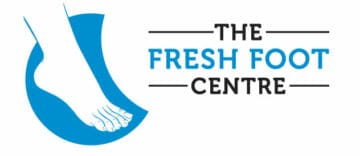The Achilles Tendon is a thick band of muscle with connects to the heel bone. This achilles tendon essentially helps you raise your heel off the ground and allows you to put one foot in front of the other.
Why does achilles tendinosis or achilles tendonitis happen?
To put it simply, the achilles tendon can become inflamed for several reasons.
- You have suddenly increased your load of activities therefore putting too much strain on the achilles tendon that microtears develop.
- For example; you have decided to go for a power walk and the last 200 metres you decide to jog or run it. Without the proper training and running technique you may strain the achilles tendon.
- This thick band of tissue can have several micro-tears in it which can be very painful.
- You have gained weight and decide to lose weight by starting a new sporting activities without the correct footwear or correct way of performing the sport.
- Pronated foot type: Flat feet can increase your risks of developing achilles tendinitis as well as many other lower limb foot pain and problems.
- Simply you’ve hit the the 3 F’s.
- Female- women are more predisposed to getting achilles tendinitis than men.
- Forty- As we get older, the same activities that we used to do without a problem suddenly gets more difficult. You tend to develop more muscle aches, degenerative changes occur in your body, and you have a longer recovery period. After 40 you just have to be more aware of your body’s needs.
- Full Figured- to put it simply, being overweight or obese will inevitably put high pressure loads on your feet, ankles, shins, knees, hips and lower back. The Achilles tendon is particularly susceptible to being overloaded as it plays such a crucial role in getting your foot off the ground.
Treatments may include:
- Getting a customised orthotic to take pressure off the tendon.
- Starting a strengthening and stretching exercise regime to help the achilles tendon heal.
- Wear supportive shoes.
- Using an ice pack in conjunction with anti inflammatory medication to reduce inflammation.
- Heel cups or a heel lift can be used temporarily to take pressure off the tendon.
- Lose weight- as this will automatically reduce the strain.
- Semi custom or custom made orthotics may be required in the long term depending if the problem is biomechanical in nature (due to how you walk, your foot type, your injury
This article is not meant to offend anyone. It is pointing out some easy ways to reduce the strain on the Achilles tendon. Please be advised we are trying to give the best recommendations according to the needs of the community, however sometimes further investigations may be required.

